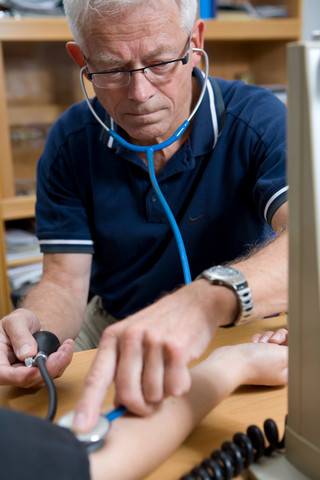Social inequality is reflected in general practice
Social inequality can have consequences in the GP’s consultation room. This is shown by new research from the Research Centre for Cancer Diagnosis in Primary Care (CaP) and the Research Unit for General Practice at Aarhus University. Burnout among GP’s working in socially deprived areas is one area that is in focus.

A new study of 601 general practitioners from the Central Denmark Region and their patients shows that there is a greater risk of burnout among doctors if they work in a socially deprived area, particularly if there are many patients on transfer incomes.
"This may help to explain why the most disadvantaged patients are those who most often receive treatment too late and fair worse when they become ill compared to more resourceful patients," says one of the researchers behind the study, postdoc Anette Fischer Pedersen from the Research Centre for Cancer Diagnosis in Primary Care (CaP) and the Research Unit for General Practice at Aarhus University.
Valuable time can be lost
The researchers know that socially disadvantaged patients are more often ill, that they are more likely to suffer from both physical and psychological symptoms than other people – and that they die earlier when they become seriously ill. What is new is that the researchers have for the first time compared data on the socio-economic background of patients with information about how these patients’ doctors have experienced burnout.
"If the correlation we can see turns out to be of importance to the quality of treatment, then we see a risk of valuable time being lost in the course of serious illnesses,” says Anette Fischer Pedersen.
"But this is still one of the big questions that we are currently investigating. Particularly as it is paradoxical that we also know the most committed and dedicated doctors are often found in socially vulnerable areas."
- The study ”Understanding the inverse care law: a register and survey-based study of patient deprivation and burnout in general practice” was published in the scientific journal International Journal of Equity Health.
Facts:
- Seventy-two per cent of the general practitioners in the Central Denmark Region (601 in total) participated in the survey on burnout among GP’s, which was published in 2014.
- Researchers have now looked at the socio-economic data for the same GP’s patients. These figures come from Statistics Denmark.
Further information:
Postdoc, Psychologist and PhD Anette Fischer Pedersen
Aarhus University, Research Unit for General Practice, Research Centre for Cancer Diagnosis in Primary Care (CaP)
Tel.: +45 8716 7917
Mobile: +45 2963 8004
afp@feap.dk
